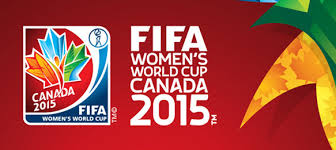By Andrew Warshaw
July 3 – The Women’s World Cup may have become an established part of the FIFA calendar since it was launched in 1991 and truly came of age when the Americans won on home soil eight years later.
But while the current tournament in Canada has attracted impressive crowds and undoubtedly given the sport a huge boost, not least in the UK which traditionally feasts on men’s football, the standard of officiating has perhaps been the only blot on proceedings.
Female voices high up in FIFA and the organising committee privately admit that refereeing could have been better but point to the fact that the officials appointed are not used to such high-pressure fixture in their own domestic leagues where the women’s game lacks the sophistication and funding of the men’s.
While female players are quicker and more skilfull than in the past, refereeing has not kept pace with the quality of play. But officials are adamant that male referees are not being considered for future women’s events despite being more experienced as a result of working in the Champions League, Europa League and a number of high-profile domestic competitions.
Much has been made of Germany’s fortituous quarterfinal win over France courtesy of a dreadful decision but Germany too suffered a poor call when the Romanian referee failed to send off Julie Johnston of the US when she was the last defender in the semifinal.
There was also clear evidence that the foul by German defender Annike Krahn on Alex Morgan which led to the US spotkick occurred outside the area.
In their 2-1 semifinal win over England, Japan grabbed the lead through another controversial penalty when Claire Rafferty nudged Saori Ariyoshi in the back and the New Zealand referee pointed to the spot. Seven minutes later another debatable penalty award pulled England level.
Now, with the calibre of officiating questioned, the spotlight is on Sunday’s final between the United States and Japan.
FIFA says it has no plans to bring in more experienced male officials for crucial matches. “Right now not at all,” Tatjana Haenni, FIFA’s head of women’s competitions, said when asked about the possibility of using both male and female officials. “Now that women’s football becomes so popular I see it as a risk that we now have the discussion why don’t we have more male referees.
“On the women’s refereeing side we now have to decide do we give more opportunities to the women’s referees to be at the top level of the game or do we still not do enough and at one point women will have huge difficulties to be at the top level.”
Massimo Busacca, FIFA’s Head of Refereeing, admitted to a group of reporters that the overall quality of officiating needed upgrading but that overall he was happy. “For me they are doing well,” Busacca said. “The officials who remain now know what they are doing.”
Contact the writer of this story at andrew.warshaw@insideworldfootball

